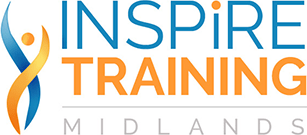How line managers can play a vital role in managing and supporting colleagues with menopausal symptoms

October is World Menopause Month and on 18 October every year, World Menopause Day is observed. This aims to raise awareness about menopause and support for women going through their natural life transition.
Menopause, typically occurring between the ages of 45 and 55, marks the cessation of menstruation and the end of a woman’s reproductive years. It can, however, occur before that age for some women, either naturally or due to surgery or medical treatment.
In a survey of 1,000 adults in the UK, the British Menopause Society found that 45% of women felt menopausal symptoms had a negative impact on their work and 47% needing to take a day off work due to menopause symptoms say they wouldn’t tell their employer the real reason.
Coping at work
Coping with the menopause in the workplace can be difficult. Common symptoms of the menopause range from cognitive, physical and psychological. They may include hot flushes, brain fog, poor concentration, mood swings, anxiety, headaches and aching limbs, to name but a few. While menopause is a natural biological process, its symptoms can significantly impact a woman’s quality of life. It is crucial to understand that each woman experiences menopause differently, and support from healthcare professionals, as well as friends, family and their workplace, can make a world of difference in navigating this phase.
Tips for managers
Here are some tips for line managers when having conversations related to menopause:
- Brush up on the facts: Educate yourself about menopause to better understand the experiences of your employees.
- Ask people how they are, regularly and at different times: Show genuine interest in their well-being and create a supportive environment.
- Keep an open mind and be flexible: Be willing to accommodate any necessary adjustments or support during this transitional phase.
- Be interested in their personal experience: Acknowledge and respect the individual journey of each employee.
- Provide a private and confidential environment and avoid interruptions: Ensure a safe space for open and honest discussions.
- Listen actively and carefully, expect some pauses: Allow employees to express themselves fully, even if there are moments of silence.
- Focus on the person and not the problem: Approach conversations with empathy and understanding.
- Remember that symptoms can affect performance if not supported: Acknowledge that menopausal symptoms can impact work and offer appropriate assistance.
- Point out other sources of help or information: Learn about and direct employees to additional resources or support groups that can provide further guidance.
- Follow up on the conversation and actions: Ensure that any agreed-upon measures or accommodations are put into practice and followed up on.
- Don’t make assumptions or judgments: Avoid preconceived notions and approach each conversation with an open mind.
- Don’t define someone as ‘menopausal’: Respect employees as individuals beyond their menopausal status.
- Don’t be embarrassed: Create a comfortable atmosphere where employees feel safe discussing their experiences.
- Don’t offer medical advice: Encourage employees to consult healthcare professionals for any medical concerns or advice.
Awareness
In summary, World Menopause Day serves as a vital platform for raising awareness and understanding about the challenges faced by women during menopause. By shedding light on the physical and emotional aspects of this natural life transition, the day aims to promote empathy, support, and effective management strategies to help women maintain their overall well-being and lead fulfilling lives during and after menopause.
Janet Baker runs a menopause support and friendship group in her local town. MenoTalk Halesowen meets monthly and features speakers and guests covering menopause related topics.
Guest presenters have included a menopause at work champion, a nutritionist, an osteopath, a yoga teacher, a gym owner/fitness expert, a hypnotherapy, meditation and mindfulness expert, Holland and Barratt’s local menopause champions, a counsellor, a reflexologist, a skincare consultant, and a Pilates instructor.
It ![]() also has an active Facebook page with around 300 members.
also has an active Facebook page with around 300 members.
For more information about ways in which you can offer support in your organisation, please contact Janet Baker on 07944225290 or email [email protected].



Blog